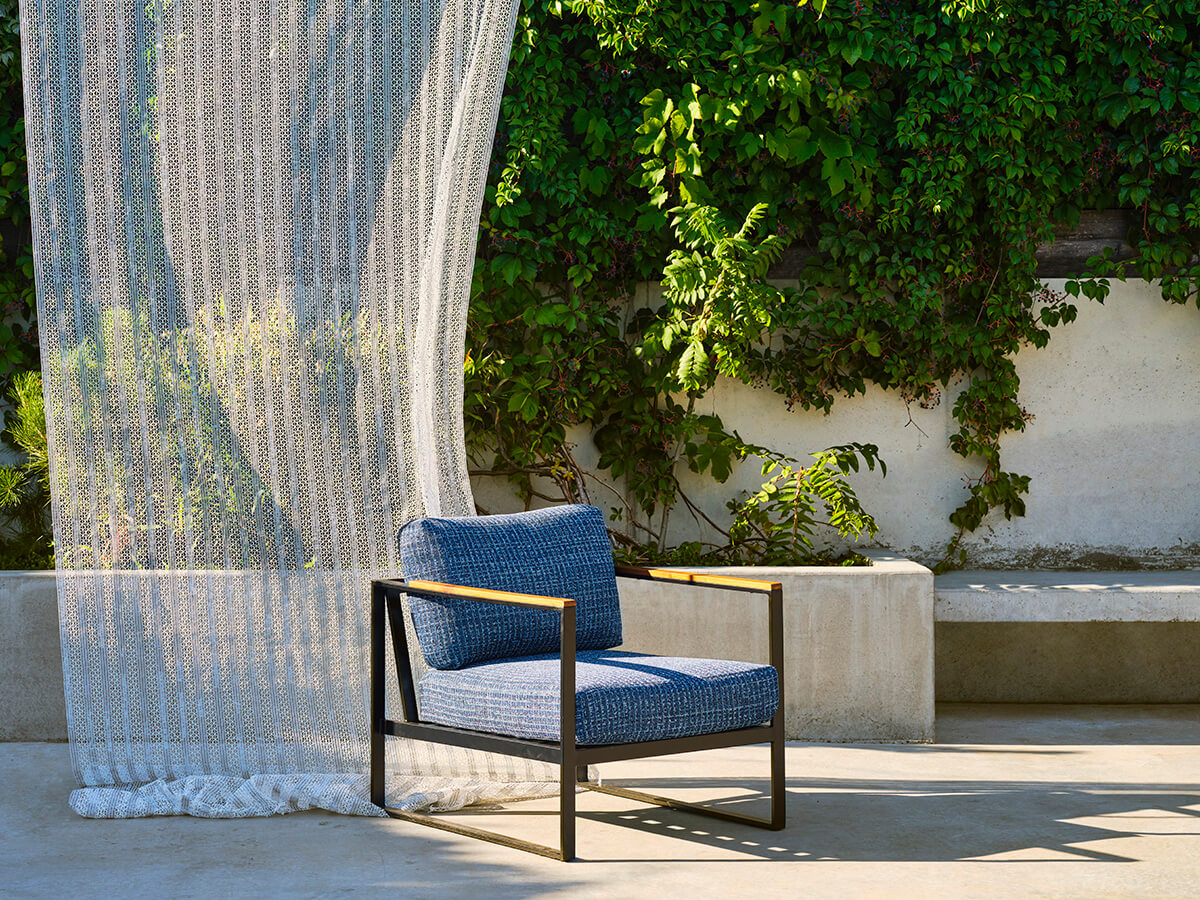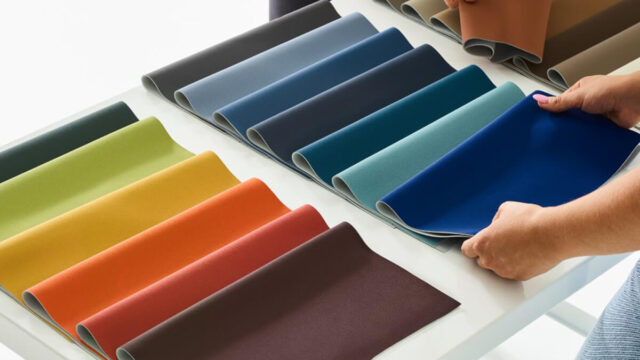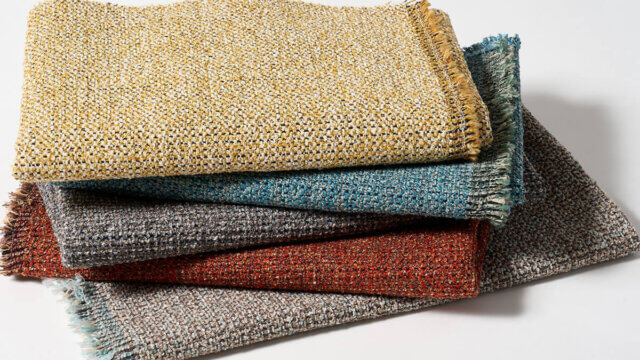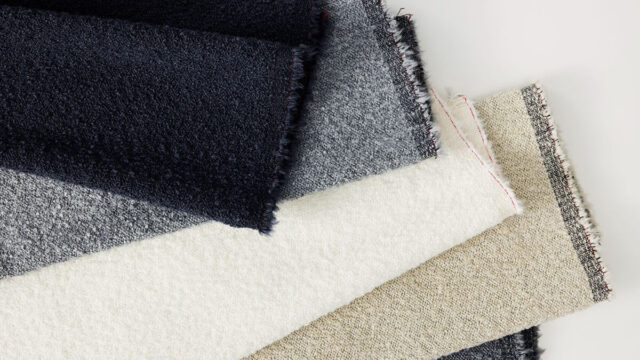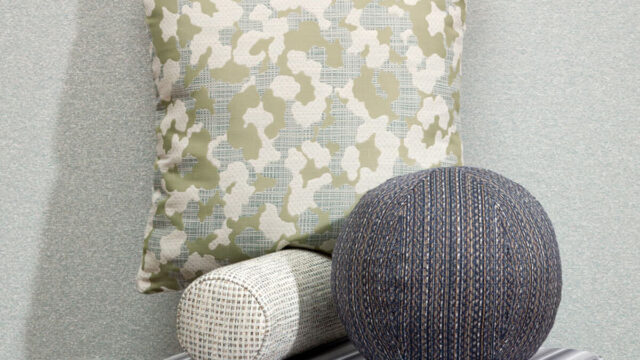Carnegie Fabrics, a leader in sustainable textiles and acoustical management solutions for the commercial industry, has launched Outdoor Biobased Xorel, a plant-based, commercial-grade outdoor performance textile.
Architects and designers face a unique challenge when working in the commercial sector. Commercial spaces demand contract-grade finishes that withstand high traffic and rigorous cleaning protocols, but they must also adhere to strict design guidelines. To add to this challenge, as the indoor-outdoor connection becomes more critical in the post-COVID era, outdoor spaces are increasingly a part of planned communities, senior housing, healthcare facilities, education campuses, sporting arenas and hospitality venues. While the Xorel brand has been meeting the challenges of the world’s most demanding interior environments for more than 40 years, the launch of Outdoor Biobased Xorel enables designers to now deliver the same brand promise to the outdoor sector.
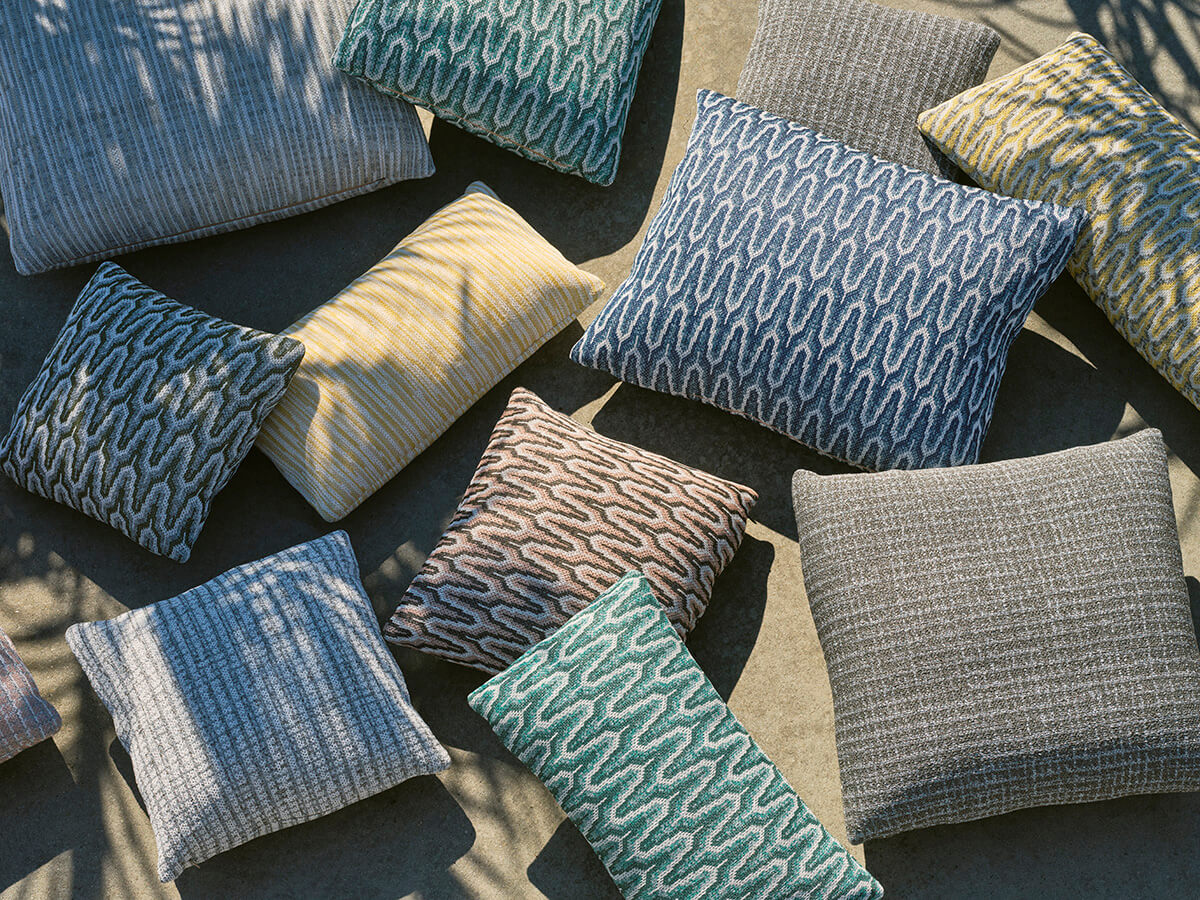
Outdoor Biobased Xorel is breathable, non-absorbent, fast-drying and weather-proof. Without any added finishes, coatings or chemistry required to perform, it is inherently wear and stain-resistant, colorfast and antibacterial. It can be wiped, hosed, scrubbed and aggressively cleaned with bleach without degrading in quality.
“Carnegie has always been committed to creating best-in-class sustainable, high performance and beautiful fabrics, and the Xorel brand has delivered on that promise for the past 40 years,” said Carnegie’s Chief Creative Officer Heather Bush. “To ensure the utmost quality and striking beauty that our clients have come to expect from the Xorel brand, Outdoor Biobased Xorel has undergone thousands of hours of laboratory and field testing. We’re delighted with the result.”
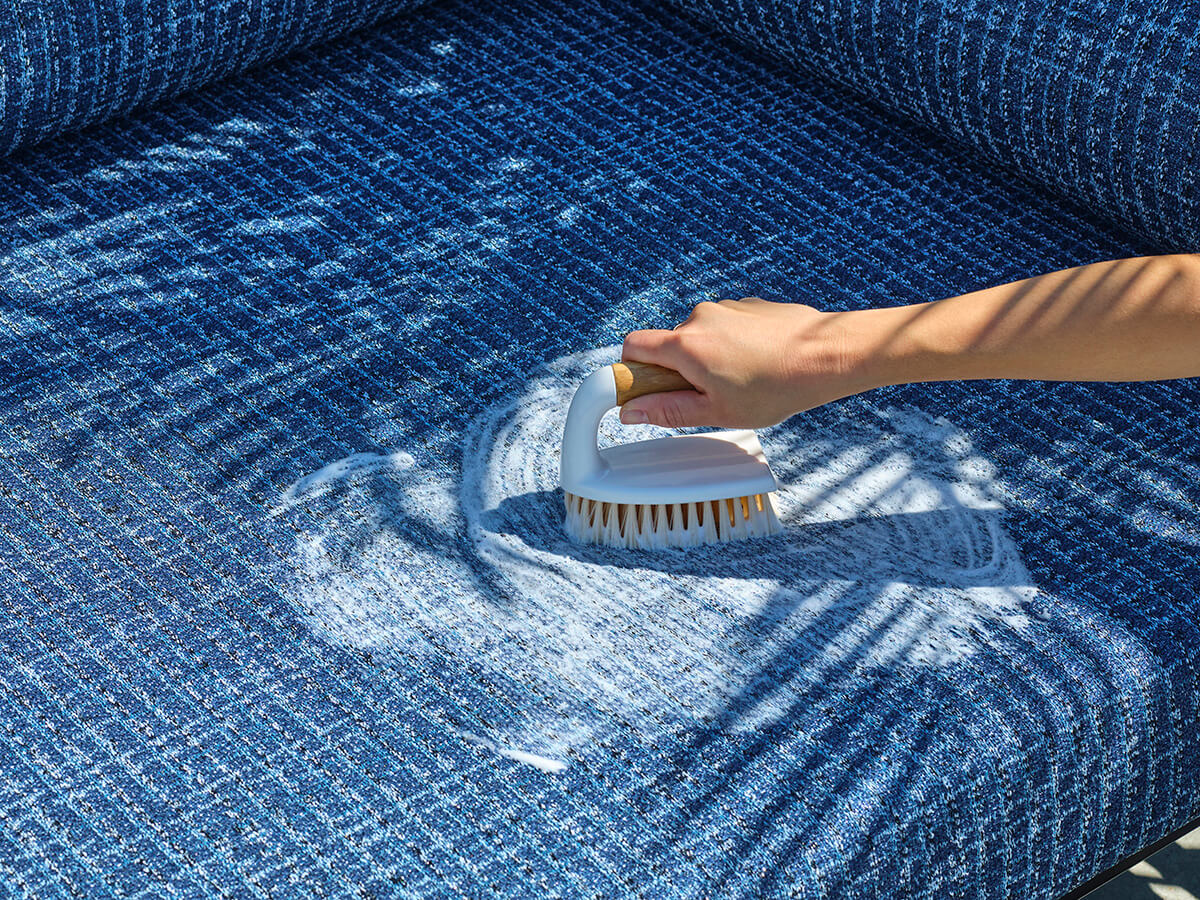
While textiles can be labeled as “bio-based” for containing just 25% of non-fossil-fuel derived material, Outdoor Biobased Xorel yarn contains 85% biobased PE content, according to the company. Sourced from rapidly-renewable sugarcane, Biobased Xorel yarn has a significantly lower environmental footprint than any fossil fuel-derived product. For each ton of sugarcane used to produce Biobased Xorel, 2.5 tons of carbon is captured and sequestered, making it a carbon-positive product.
“Carnegie Fabrics was founded upon the promise that it would be forever PVC-free. Outdoor Biobased Xorel not only meets this commitment but is also free of other harmful materials such as plasticizers, heavy metals and toxic dyes,” said Carnegie Fabrics CEO Gordon Boggis. “With so many empty sustainability claims on the market, it can be hard to break through the noise. I’m so proud that Carnegie can back these claims and be the world’s first in many categories.”
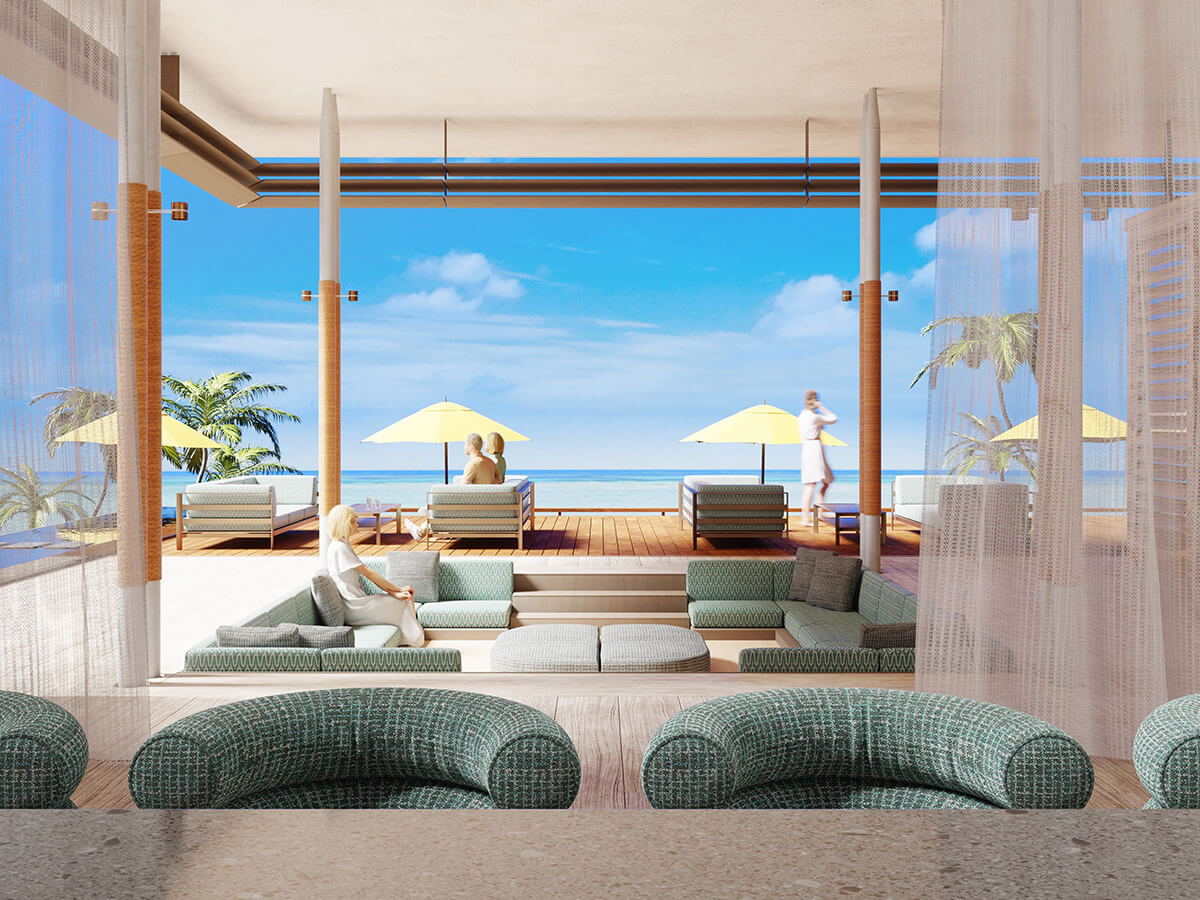
Each pattern in the Outdoor Biobased Xorel collection comes in various color options. The fabrics can be knit, woven or crocheted to achieve a wide range of applications, such as seating, outdoor drapery, wallcoverings, acoustic panels and dividers. The collection’s patterns:
- Zion: The sedimentary rocks found in Zion National Park inspired this pattern. It is suitable for applications such as upholstery, upholstery walls and panels.
- Acadia: Inspired by the various textures and landscapes in Acadia National Park, the design is available for applications such as upholstery, upholstery walls and panels.
- Denali: The pattern evokes the mountain peaks of Denali Mountain. Designers can use this pattern for upholstery, upholstery walls and panels.
- Nest: The Nest textiles are created using crochet techniques that blur the line between craft and commercial functionality, delivering architectural materials to define and divide outdoor spaces artfully. It is suitable for outdoor drapery, vertical partitions, privacy screens and space dividers.
- Cover: Free of PVC, chlorine, plasticizers, heavy metals and ozone-depleting chemicals, while containing no topical finishes and extremely low levels of VOC, Cover is antibacterial and safely disposable. The pattern is available for outdoor drapery, vertical partitions, privacy screens and space dividers.
